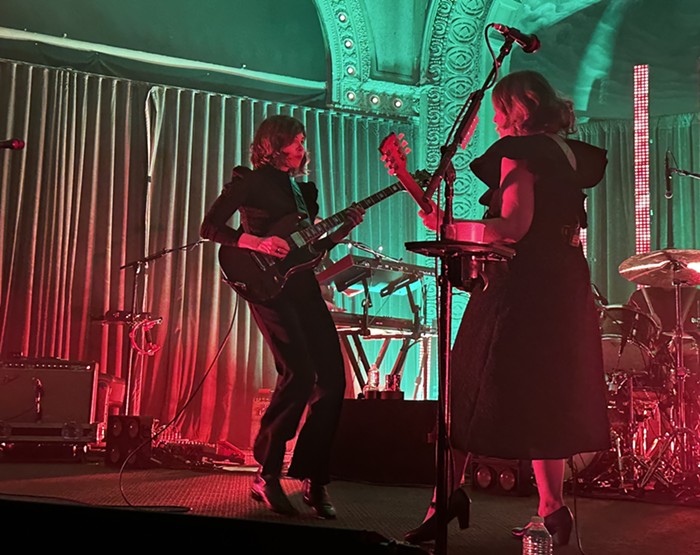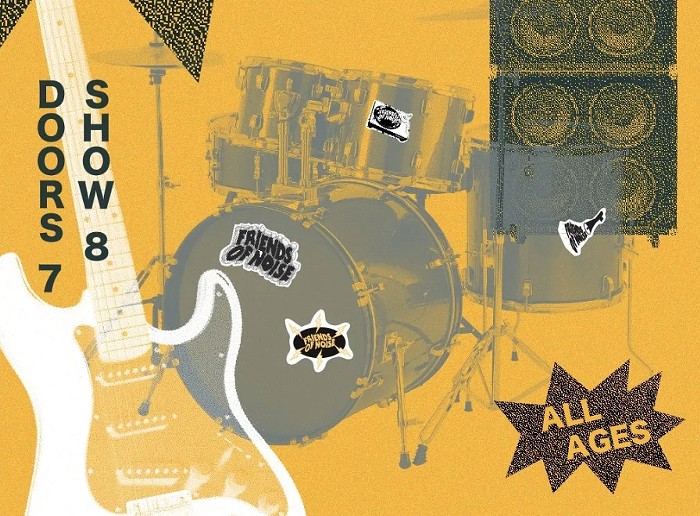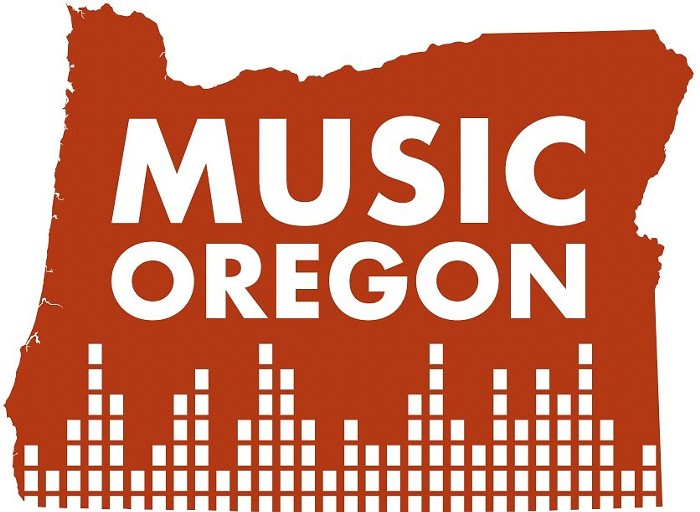Mon Nov 22
Roseland
8 NW 6th
Avil Lavigne
Tues Nov 23
Rose Garden
One Center Ct.
The potential of pop music's political muscle has been largely undermined by its many perceived failures--the hedonistic implosion of the '60s, the self-fulfilled prophecy of British punk, the alt-rock collapse of the '90s. What is often ignored, however, is just what effect the ripples from those failed missions had on the personal vision of an impressionable populous--just how much change pop music has made, however inadvertently. In my lifetime, for instance, there is a particularly keen example: Music has become a (if not the) chief primer on the ideals of feminism. When I look to most of the people in my immediate peer group, men and women who classify themselves as "feminists," I don't find many that came there by direct avenue of Gloria Steinem or Bell Hooks--the fact is, most of those people found their inspirations as devotees of Joan Jett, Patti Smith, the misguided politicking of Kurt Cobain, or more importantly, of the Riot Grrrl movement. Where we come from, poverty-ridden public school academia doesn't allow much room to develop a social conscience. And my moral compass came from punk records. Music and its celebrity may not inspire the kind of revolution it necessarily intends, but it can certainly make a successful campaign for the hearts and minds of those most impressionable.
To that end, it seems to me that the future of feminism (and a good deal of other social causes that depend on the energies of the young) relies to some small degree on the power of modern musicians to act as a sort of catalyst for empowerment (this is certainly an over-simplification, but just bear with me). Amongst all of the teenage girls being pimped by MTV, the Disney Corporation, and even their own parents, a number of likely candidates are emerging from out of the mainstream, of all places--two of which play Portland this week. One front-runner is a major label artist whose watered-down new record seems more concerned with garnering magazine covers than progressing artistically; the other is Avril Lavigne.
Angst as a marketing campaign, the career of the nation's reigning "punk princess" is remarkably transparent--a new country enthusiast until her unlikely signing with Arista in 2000, Lavigne got her bloodlust for fame when she won a radio contest that saw her performing alongside Shania Twain in 1999. Somewhere between '99 and the recording of Lavigne's Let Go (produced and co-written in part by Clif Magness, famous for his work with artists like Celine Dion and Wilson Phillips), her record company decided to buy the Canadian teenager a skateboard, a neck tie, and enough black eyeliner to outfit all of Ontario for life. Avril became a "punk." Avril became a "rebel." Avril became a "major cultural annoyance." But don't the kids just love her? And in the spectrum of cultural significance, Avril's potential relevance to contemporary kids is most akin to the Joan Jett archetype--a well-conceived, fuck-all rebel without a cause who's still pretty enough to be a Noxema model. Like Joan Jett, Lavigne is not explicitly a feminist role model--the movement's agenda isn't an official part of her marketing campaign--but she has been positioned to exploit an archetype of personal empowerment that was so instrumental in Jett's success. Like the Tina Turners, Ronnie Spectors, and Nina Simones of pop history, Jett has served as a feminist role model only in afterthought, not by design. Lavigne's handlers have this in their collective hindsight, and have thoughtfully aped the strong women motif (down to Jett's androgynous apparel)--providing preteen girls an empty alternative to the all-pervasive teen pop princess.
At the other end of the corporate rock spectrum (sort of), you have punk's previous princess, the once awe-inspiring Kathleen Hanna, and her newly major-labeled electro-punk project Le Tigre. As the mouthpiece of Bikini Kill, the figurehead of the Riot Grrrl movement, Hanna was instrumental in introduction of a proactive feminist model to an entire generation. It's amazing in retrospect to think about just how pervasive Bikini Kill was at the time--lobbing Riot Grrrl politics regularly into the pages of teen magazines like Sassy, not to mention spreads in Rolling Stone and Newsweek--they even played Bikini Kill on Roseanne. It actually felt like Revolution Girlstyle Now. Fast-forward less than a decade, and after two muscular, explicitly feminist battle cries with Le Tigre, Hanna seems to have lost the plot entirely--and the worst part is, she did it in front of everybody this time.
In finally inking a major label deal after years of wallowing in indierock's limited mire, Hanna was handed an unprecedented opportunity: the money and muscle to finally expose the masses to her version of feminism--the chance to bypass the derision that her message has long met in the mass-media by becoming the mass media. Instead, Le Tigre dropped This Island--an album as politically and musically impotent (if you'll excuse the term) as Bikini Kill was empowering. Just how bad is This Island? Well, let's see: if Le Tigre's sound had devolved into mass-consumable commercial pap and maintained its strong political focus, it would have been better than this. Alternately, had the music maintained its endlessly addictive pop hooks or invigorating grind and stool-softened their message for mass consumption, it would have been better than this. As it is, This Island is middling on all counts: the message is alternatingly too clichéd ("This is what democracy sounds like") and too obtuse. The music is both glossy and unmemorable. In short, they totally blew it. And though Hanna and the other Le Tigres (Johanna Fateman and JD Sampson) could make the perfect feminist foil to masses of teenagers everywhere, they'll never get a chance to with a record as flat as This Island.
Of course, the feminist agenda in music isn't limited to Avril LaTigre--like with the Riot Grrrl movement, there are still plenty of strong voices for women alive in independent media. But I wonder, with the saturation of female "role models" in popular music today--the teen pop army largely dominating popular culture--isn't it easier for impressionable minds to accept one of the endless flavors mass media offers them? And if the smart kids out in po-dunk America--like most people I know--still rely on music to help hammer out the liberal wash in their heads, couldn't we be in a world of trouble?


















